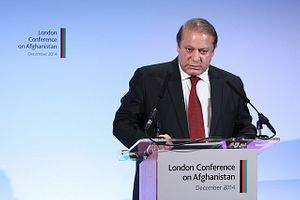The new National Unity Government (NUG) in Afghanistan led by President Ashraf Ghani has been taking a new approach towards Pakistan, making significant concessions, albeit with uncertain results. Recent outcomes of these efforts include the historic signing of an agreement between the intelligence agencies of both countries on intelligence cooperation and joint raids on terrorist groups in the border areas of both Afghanistan and Pakistan. These are deemed to constitute an almost historic breakthrough, given that no formal agreement existed in the past. This is a two-way street, in which under a formal arrangement the intelligence agencies of both the countries can explore their respective strengths and weaknesses and exploit each other, which would seem to give ISI the edge as an experienced intelligence agency over its relatively young and inexperienced Afghan counterpart, the NDS.
Since taking office, the new National Unity Government in Kabul has taken an optimistic approach towards Pakistan. Its policy has involved extending an olive branch to Pakistan and reaching out to Pakistan and its allies, including China, Saudi Arabia, and the United States, to give Pakistan the required security and economic assurances it needs to change course and policy towards Afghanistan. In recent months Ghani has traveled extensively to the capitals of Pakistan’s allied states to put pressure on Islamabad to bring the Taliban to the negotiation table and eventually reach a peaceful political settlement.
Though Kabul should be given credit for this change of policy towards Pakistan, the best way to describe this new diplomatic posture is naïve, given the underlying currents in the historical issues since the establishment of Pakistan as an independent state. Afghanistan and Pakistan should address the fundamental historical questions through a strategic dialogue. Many of the recent moves between the political and military leaders of the two countries are merely tactical in nature, without any strategic depth or end in sight. It is much like a Ping-Pong match, with Pakistan as the clear long-term winner.
Afghanistan’s government has recently been pursuing a three pronged approach to Pakistan: 1. Engagement with Pakistan’s military and intelligence establishment at the highest levels; 2. Briefing Pakistan’s civilian political leaders, including its main political parties; and finally 3. Engaging with Pakistan’s allies to put convince Pakistanis that their country’s current policy of strategic depth and awaiting the withdrawal of NATO – playing the time game – will only backfire and this time at a greater cost for Pakistan.
While Pakistan will be an integral part of any future political settlement in Afghanistan, its role in bringing the Taliban on the peace table and assisting in reaching a final political settlement is greatly exaggerated.
Today the cause of Afghan peace is mainly used as a political tool to gain territory and legitimacy, or as an intelligence tit-for-tat game. There does not seem to be a genuine peace process or roadmap; rather, peace is increasingly being used as a political-military game with each side interested in scoring points. It increasingly seems that the name of the game is to give territorial legitimacy to the Taliban and their allied terrorist groups inside Afghanistan by imagining a more fanatic enemy for both the Afghan National Security Forces and the Taliban. This will expedite – or at least, that is what is hoped – the reconciliation process, bringing part of the Taliban movement into the Afghan political process by offering them public office.
The Afghan government should be given credit for engaging with Pakistan. Yet the questions remain: What is the cost, and what can it expect in return for its recent concessions? Peace cannot be attained through military-intelligence work. It requires genuine a political will and commitment from both sides and a balance of power in which both sides realize that the only way to reach to a dignified peace is through a political dialogue and not the barrel of a gun.
The governments of Pakistan and Afghanistan cannot forever neglect fundamental historical questions in favor of tactical and routine policy issues. At some point, they will need to begin a comprehensive strategic dialogue that encompasses all historical and fundamental issues. Certainly any such dialogue will be long, difficult, and at times frustrating. But it is the only mechanism through which the two countries can achieve the kind of settlement that ensures the same issues aren’t still bedeviling the relationship years from now.
Tamim Asey is a Fulbright alumni and a Columbia University Graduate. He is currently a Kabul-based researcher and writer.
































